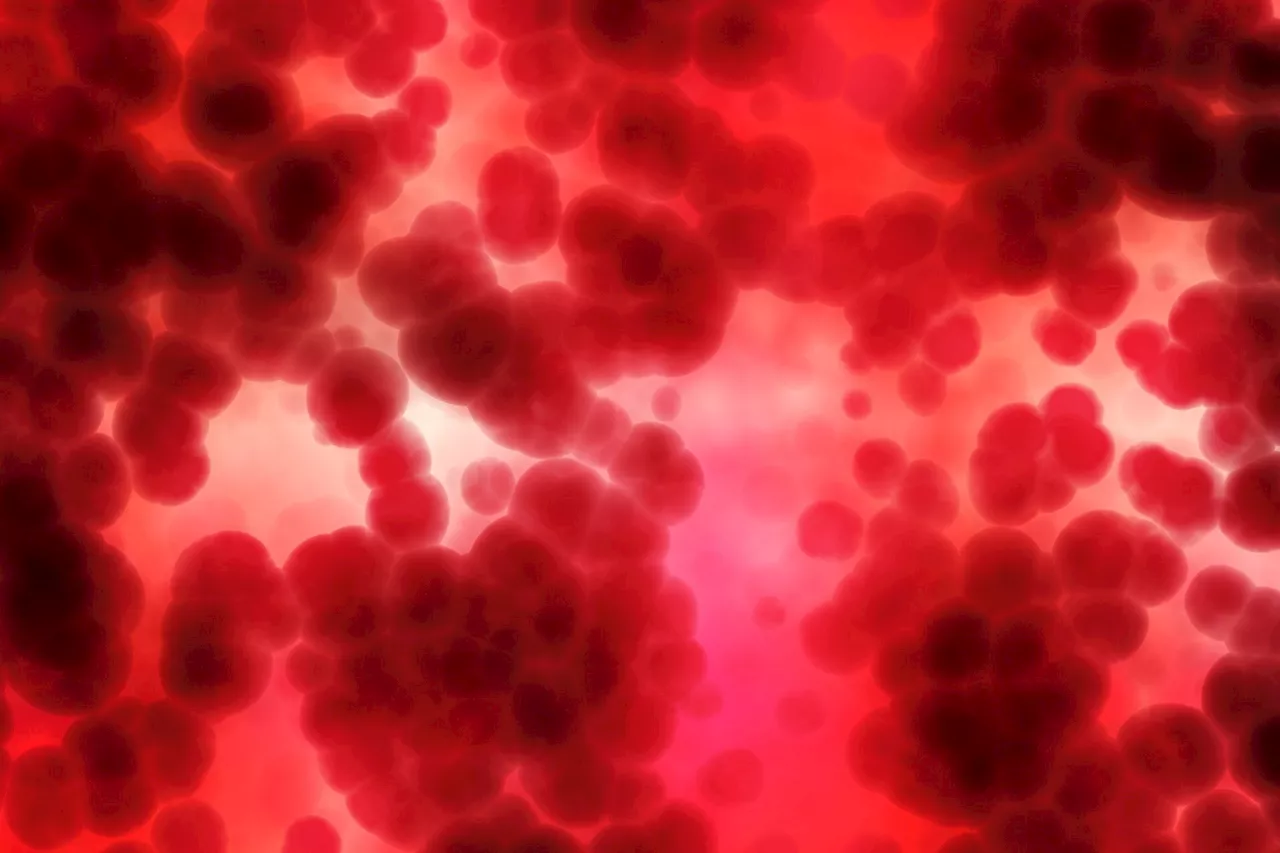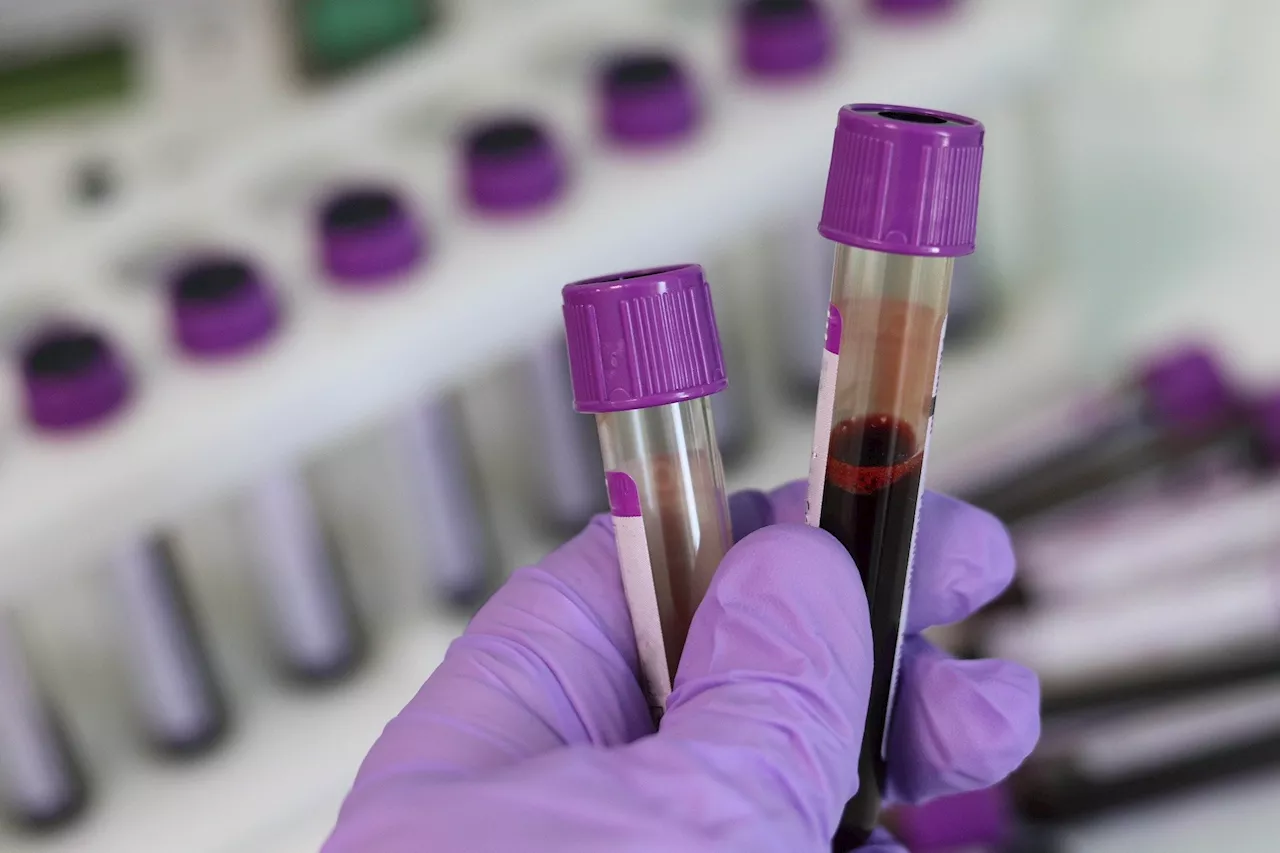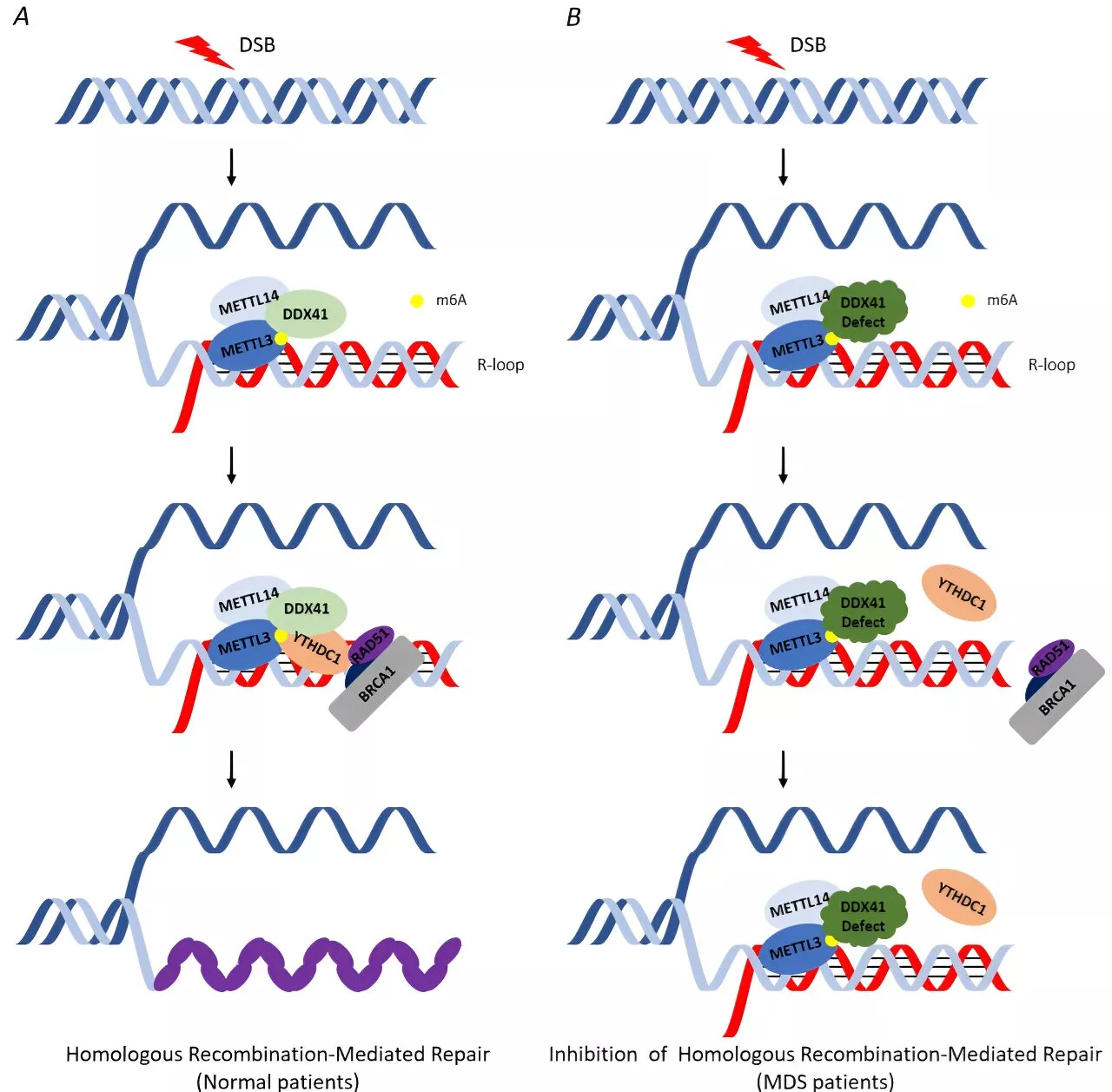As people age, they become more prone to blood clotting diseases, when blood cells called platelets clump together when they don't need to and can cause major issues such as strokes and cardiovascular disease.
May 15 2024University of California - Santa Cruz As people age, they become more prone to blood clotting diseases, when blood cells called platelets clump together when they don't need to and can cause major issues such as strokes and cardiovascular disease .
Understanding platelets Platelet cells are one of three types of blood cells produced by the body, with red and white blood cells being the other two. Millions of these cells float around in the blood at all times, and when an injury occurs either internally or externally, they clot together to form a natural, living bandaid. Platelet dysregulation, which is known to increase with age, occurs when these cells are either hyperreactive and form clots too often, or are underperforming.
They conducted experiments that allowed them to trace the lineages of these stem cells in mouse models, and discovered that in aged mice some of their platelets did not travel along the differentiation pathway. Instead, they took what the UCSC researchers dubbed a "shortcut" pathway, skipping over the intermediary steps and immediately becoming megakaryocyte progenitors, the blood cell stage immediately before platelet production.
"The gradual differentiation cascade maintains a youthful property, and I feel like that is also surprising within itself," Poscablo said. Choosing better treatments Knowing that this secondary population of platelets exists will help researchers find new ways to target and regulate these problematic cells via their stem cells. Before this, researchers have not tried to target these upstream cells.
Blood Platelet Aspirin Blood Vessel Cardiovascular Disease Cell Drugs Fluorescence Fluorescence Microscopy Microscopy Platelets Red Blood Cells Research Stem Cells Stroke Vascular
Singapore Latest News, Singapore Headlines
Similar News:You can also read news stories similar to this one that we have collected from other news sources.
 Study shows virus that causes COVID-19 can penetrate blood-retinal-barrier and could damage visionThe blood-retinal barrier is designed to protect our vision from infections by preventing microbial pathogens from reaching the retina where they could trigger an inflammatory response with potential vision loss.
Study shows virus that causes COVID-19 can penetrate blood-retinal-barrier and could damage visionThe blood-retinal barrier is designed to protect our vision from infections by preventing microbial pathogens from reaching the retina where they could trigger an inflammatory response with potential vision loss.
Read more »
 Older adults with aggressive blood cancer are responsive to treatment and show prolonged survival: StudyStandard of care treatment for acute myeloid leukemia (AML) is safe and effective for adults over 80, according to a study published in Blood Neoplasia. For roughly a quarter of patients, this treatment can durably prolong survival.
Older adults with aggressive blood cancer are responsive to treatment and show prolonged survival: StudyStandard of care treatment for acute myeloid leukemia (AML) is safe and effective for adults over 80, according to a study published in Blood Neoplasia. For roughly a quarter of patients, this treatment can durably prolong survival.
Read more »
 New study identifies 17 genes driving clonal hematopoiesis in aging blood cellsScientists have discovered 17 additional genes that drive the abnormal overgrowth of mutated blood cells as we age. The findings, published today (14 May) in Nature Genetics, provide a more complete view of the genetic factors behind clonal hematopoiesis – a process associated with ageing and linked to increased risks of blood cancers.
New study identifies 17 genes driving clonal hematopoiesis in aging blood cellsScientists have discovered 17 additional genes that drive the abnormal overgrowth of mutated blood cells as we age. The findings, published today (14 May) in Nature Genetics, provide a more complete view of the genetic factors behind clonal hematopoiesis – a process associated with ageing and linked to increased risks of blood cancers.
Read more »
 Mouse study finds small extracellular vesicles from young blood extend lifespan and restore physiological functionsNew research presents a significant discovery: small extracellular vesicles (sEVs) from the blood of young mice possess the capacity to dramatically extend lifespan, rejuvenate whole-body physiology and reverse age-related degenerative changes in aged mice.
Mouse study finds small extracellular vesicles from young blood extend lifespan and restore physiological functionsNew research presents a significant discovery: small extracellular vesicles (sEVs) from the blood of young mice possess the capacity to dramatically extend lifespan, rejuvenate whole-body physiology and reverse age-related degenerative changes in aged mice.
Read more »
 Signs of multiple sclerosis show up in blood years before symptoms, study findsIn a discovery that could hasten treatment for patients with multiple sclerosis (MS), UC San Francisco scientists have discovered a harbinger in the blood of some people who later went on to develop the disease.
Signs of multiple sclerosis show up in blood years before symptoms, study findsIn a discovery that could hasten treatment for patients with multiple sclerosis (MS), UC San Francisco scientists have discovered a harbinger in the blood of some people who later went on to develop the disease.
Read more »
 Study reveals insights into DDX41 protein's role in blood cancer pathogenesisA study led by Professors Hongtae Kim and JaYil Lee from the Department of Biological Sciences, in collaboration with researchers from the Catholic University of Korea, sheds light on the pivotal role of mutated DDX41 protein in the pathogenesis of Myelodysplastic Syndrome (MDS), a form of blood cancer.
Study reveals insights into DDX41 protein's role in blood cancer pathogenesisA study led by Professors Hongtae Kim and JaYil Lee from the Department of Biological Sciences, in collaboration with researchers from the Catholic University of Korea, sheds light on the pivotal role of mutated DDX41 protein in the pathogenesis of Myelodysplastic Syndrome (MDS), a form of blood cancer.
Read more »
